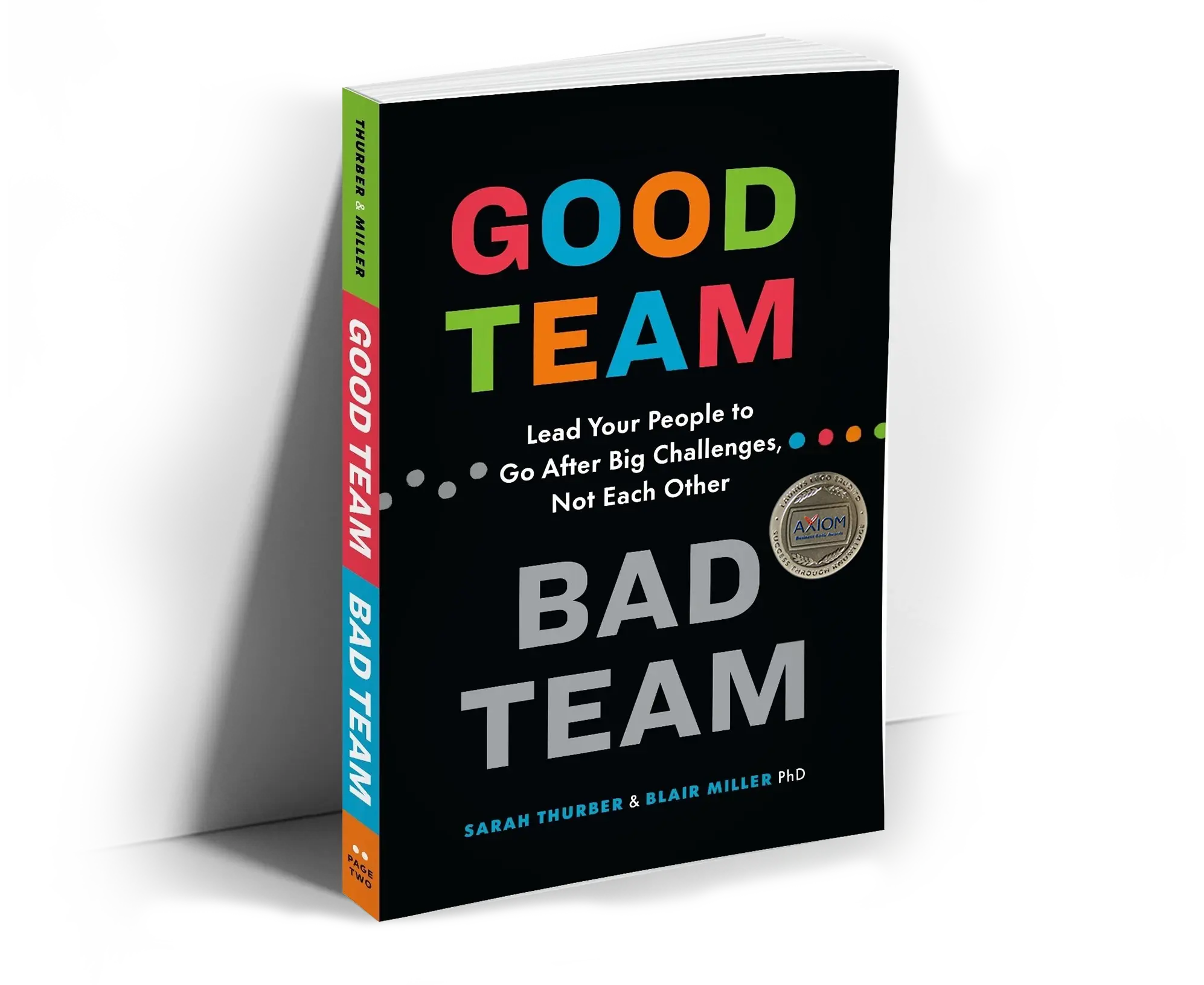Good is the Goal
Posted on January 9, 2025

At FourSight, we believe the fastest way to high performance is to give diverse thinkers a common language to solve problems together. Drawing on twenty years of data from our FourSight Thinking Profile assessment—we reveal our unconscious problem-solving patterns that cause conflict and stall progress. Our new book, Good Team, Bad Team, guides leaders and teams to avoid their cognitive blind spots so they can accelerate their team's path to high performance.
Why is "good" the goal?
Here's an excerpt from the book, that explains why.
_________________________________________
This book will guide you on the journey to lead a good team. The upside is that if you follow this path, you’ll soon be on a good team.
Good is the goal. It was tempting to write about great teams or amazing teams. After all, who doesn’t want an amazing team? By comparison, “good” seems apologetic. But think about this for a minute. If you had good health, a good relationship, a good living, a good home, good friends, good neighbors, a good education, good parents, and good kids, your “good” life would be amazing. Right? Who sold us the bill of goods that good isn’t good enough?
As a mother of three, I suspect that much of the anxiety, depression, and isolation that plagues our kids stems from the fact that we dangle our “amazing” moments in front of everyone on social media and keep the “ho-hum” and “oh, crap!” moments to ourselves. Nobody can live up to amazing day in and day out. A good team doesn’t worry too much about being amazing. Instead, they show up every day (or almost every day) and do the work, without fail (or nearly without fail). Life happens. So does failure. The point is that a good team isn’t perfect. It’s good, and that’s what’s so good about it. People on a good team know their purpose. They trust each other. They know how to solve challenges together. A good team can remain good for a long, long time and bring great joy and satisfaction to all the people it touches. It can deal with breakdowns and recover. And when it’s called upon to be great, it can rise to the challenge.
Like many books about teams, this one has some familiar advice: lead with purpose, build trust, and work together to achieve goals. Here’s what makes it different: Good Team, Bad Team draws on a proprietary database that contains over six million data points on cognitive diversity, collected through the FourSight Thinking Profile assessment. This data, and the research it inspired, will help you understand why people approach challenges so differently, and how they can work together with less conflict and achieve goals faster with better results.
Sarah is managing partner at FourSight and the award-winning author of Good Team, Bad Team, The Secret of the Highly Creative Thinker, Creativity Unbound, and Facilitation: A Door to Creative Leadership. Her work helps teams and leaders think creatively, work collaboratively and perform at their best.
Ready to learn more about FourSight?
Contact us today to learn more about our offer and how FourSight can help your teams work better together.
If you'd like to learn more about FourSight before scheduling a call, click below to learn about our platform and the science behind FourSight.
